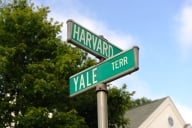You have /5 articles left.
Sign up for a free account or log in.
An R-1 university job hunter named X got a campus interview at a state university, one that does not register very high on East or West coast radar thanks to regional prejudices. This is, however, a tenure-track, 2-2 job at an institution with a Ph.D. program, so whatever s/he [hereafter he to simplify] may have thought he knew about the university or the part of the country, he should have been seriously interested in the job. As it was, his campus behavior was so marked that I heard about it a few days later from a friend of a friend.
Whenever X was asked whether he had questions about the institution, he said no. About the department: no. When asked whether he would like to see the town: no. When shown the library and asked if he wished to see any of its special collections: no. X had done no research on the hiring committee members, so did not know which ones were from his field and which were not. He knew nothing about anyone’s research there. In short, he came across as a snotty person who despised the university, people, and job, one who was clearly not interested in it and was wasting their scant money and time.
What bothers me about this is the gruesome lack of political savvy (or training) that this demonstrates. Here are some things that all candidates should realize.
Any specialty is a small field, and X will be meeting these same people over and over in the next 30 years at conferences. They will read his articles for journals or his book for a press. If they remember him as a supercilious snob, that will not incline them favorably to his work. If X gets a job somewhere and then tries for another elsewhere some years later, he might very well find someone from that snubbed university already at the new place, and that department will be told that X is uncollegial and stuck up — and he may not advance to the list of finalists.
Here is another consideration. Stories get around, and six degrees of separation in the academic world will take your story anywhere that you most prefer it not to go. From that university to someone else to me to various friends and local students and now to Inside Higher Ed. Information travels. Does X realize that he has become a bogey used to horrify and educate job hunters at two universities already, only three weeks after the interview? He is right there with an assistant professor who made an extremely stupid political mistake in material put up on Facebook, which I learned about in the same week from friends and used in the same professionalism session as this case. Does he realize that his behavior also reflects on the institution where he was trained, on the way it professionalizes graduate students and on how it influences their attitudes? He clearly does not understand how anyone connected to an institution — university or business — is enmeshed in a variety of invisible networks, and he can never again act purely as an individual; the institutional networks will be affected by what he does.
Campus visits are a great time for enriching cross-pollination of ideas. You learn how that college teaches its service courses (as opposed to the system that was sacred and not-to-be-criticized at your doctoral university). You meet faculty as equals. In most colleges, you deal with the people you meet on a first-name basis, something that may not have been common when you were a graduate student. You talk with great intensity, often one-on-one, and can find points of shared interest with a great many people. They genuinely want to know about you as a scholar and as a teacher. Some teaching technique that you rely on may be of great interest to one of your interlocutors. Some digital assignment you like may strike them as worth trying. The same, obviously, goes for what you can learn from them. You need to absorb all you can about this college and what it might offer so that you can make an informed choice should you have the rare option, these days, of more than one offer.
Visit any college with an open mind. Regional prejudices are often ill-founded. Find out how well the other faculty members (from all over the country) enjoy living there. You will probably be surprised. Elitist assumptions are almost certainly inaccurate; nearly 40 years of mostly bad job markets mean that very bright people with prestigious Ph.D.s doing genuine research are teaching at non-elite institutions. Even if you decide you do not wish to be there, it probably has some particular virtue, and that might be something to bargain for elsewhere.
Pre-judging a college can be spectacularly mistaken. Some job hunters have found, for instance, that a very elite institution in a highly desirable city left the visitor to find his or her way in from the airport (quite complicated by public transport, but a taxi would have cost $100), left the candidate to find the way from the hotel to a distant restaurant, and generally did nothing to make a stranger welcome. Another prestigious state university, on closer inspection, proved not to have had raises for several years and suffered from a fairly toxic atmosphere of personal infighting and snubbing, including misbehaving rather badly to the visitor at a lunch. One job hunter was overjoyed to get a campus interview at a Ph.D.-granting university in a state system, only to be told in private by several junior faculty members, “Don’t come here. You’ll bitterly regret it.”
The people you meet on campus visits could become professional friends and read articles in progress for you. They might collaborate in setting up sessions at conferences or editing collections. Everyone you meet in your during a campus visit is a potential colleague there or elsewhere. You should not throw away this vital chance of enlarging your personal network.




